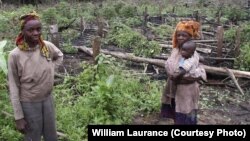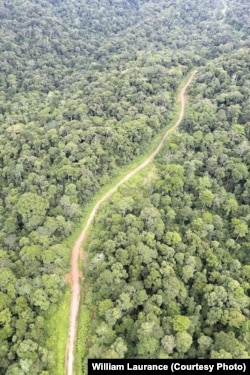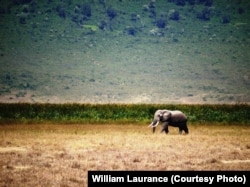A new study finds the rapid economic development in Africa may have serious social and environmental consequences.
Huge investment projects are speeding ahead to address the urgency to expand agricultural production to feed a population that is expected to nearly quadruple this century.
At the same time the continent is opening up to extensive mining, largely driven by foreign money.
No overall plan or strategy exists to coordinate the many players, both foreign and domestic.
“These gigantic proposals will create roads, pipelines, highways, railways and port facilities,” says William Laurance, director of the Centre for Tropical Environmental and Sustainability Science at James Cook University in Cairns, Australia.
“These development corridors are going to penetrate into remote regions of Africa,” he added.
Slicing the heart of Africa
In the study published in the journal Current Biology Laurance and his team assessed 33 major projects, all either proposed or in early stages.
“The corridors – each between 1,000 and 4,000 kilometers long - crisscross the continent like a spider web laid over the continent,” Laurance said.
The study accounts for human population, agricultural potential and environmental values including biodiversity, endangered species and critical habitat for wildlife and vegetation for storing carbon.”
In the comparison Laurance says six of projects looked like a good idea. “They would yield a lot of the agricultural benefits and not huge environmental costs.”
“Another six would slice into the heart of some of the most environmentally sensitive areas of Africa such as the Congo Basin and West African forest and critical equatorial and south equatorial forests of East Africa,” Laurance says. “These places are amazingly rich in wildlife and environmental resources.” Those projects should be canceled altogether.
Caution moving forward
The remainder fit somewhere in the middle. Laurance advises caution moving forward. He says what may appear to be a great deal upfront, may turn out to yield unintended consequences.
Take, for example, a large mining operation in which “limited numbers of people get really wealthy,” Laurance said.
“While there is some more employment there are still large segments of the population that are having to deal suddenly with food, land, everything is becoming a lot more expensive – and they are not getting very much benefit from it at all," he added. "So you are actually increasing the economic disparity. Mining grows, but other pillars of the economy like manufacturing or tourism become less and less important.”
Environmental loss
Laurance calls for local and national studies that can direct governments to deploy mitigation measures, - environmental safeguards that will assure a more positive future.
“And if they are not in place you can get runaway deforestation. You can get huge increases in poaching," he said. "You can get giant collapse of wildlife population. You can get loss of tourism revenue.”
“It’s in nobody’s interest, not in the developing countries, the industrialized nations to have boom and bust development that results in catastrophic environmental loss and out right devastation of environmental resources,” Laurance said.
Laurance says the time to act is now, before the projects gain a momentum that will be impossible to slow.
















